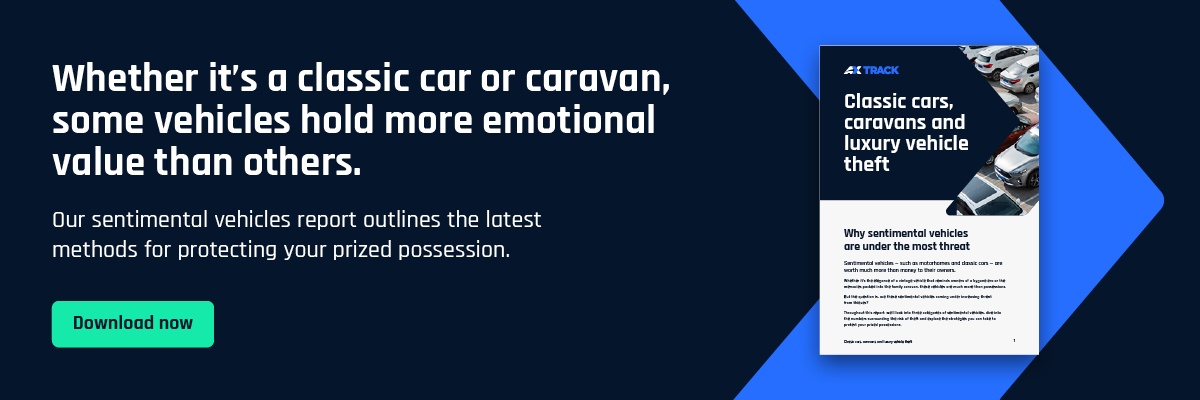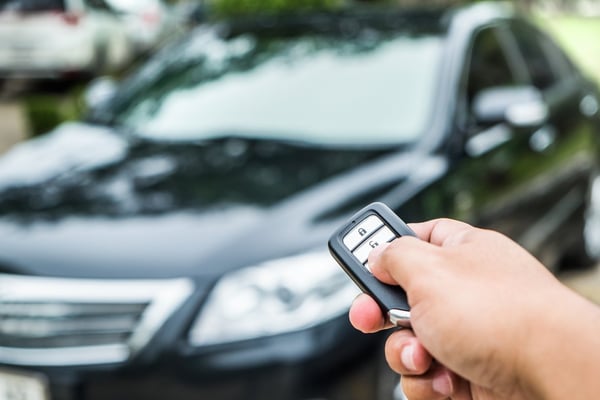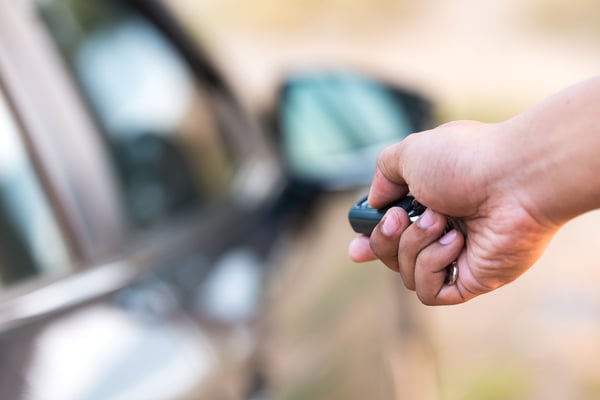Written by Neil Thomas
Everything you need to know about classic car insurance in the UK
Owning a classic car is a dream for many motorists across the UK. From timeless designs to the nostalgic roar of an old engine, many reasons make owning a classic car great.
With a classic car comes sentiment. Classic car owners generally have a higher level of care for their vehicles — along with a greater emotional attachment. When sentiment's involved, you want to ensure you have the protection you need.
Classic car insurance can often differ from regular vehicle policies. Factors including the value, rarity, scarcity of parts and the mileage it is driven can all lead to fluctuations in insurance costs.
Throughout this blog post, we'll look at classic car insurance in the UK and offer some valuable tips on getting the best possible price for your vehicle.
Classic car insurance in the UK: Why is there a difference?
Insuring your classic car is different from arranging cover for a modern vehicle.
Unlike your regular Ford Fiesta or Volkswagen Golf, vintage cars often appreciate in value over time, which is a unique aspect you must consider when arranging insurance.
There are also challenges that insurers would have to consider if a crash were to happen. These could include sourcing rare parts, skilled mechanics and increased theft risk due to their desirability.
To add more context to their desirability for thieves, the most stolen car in the UK in 2022 was the Ford Fiesta, with 5,724 stolen across the year, making for 41 thefts per 10,000 vehicles. When you compare it with the ever-popular Vauxhall Nova — a 1980s classic — the numbers show 98 thefts per 10,000 vehicles.
But it's not all doom and gloom for classic car owners regarding insurance. With vintage cars, there's typically a lower frequency of use and careful maintenance from owners — something that insurers may consider when compared to the cover of daily drivers.
What do insurers define a classic car as?
Insurance providers often follow the HMRC example of defining a classic car, which says a classic car is over 15 years old and has a market value of over £15,000.
You can also qualify for a tax exemption on your car if it's 40 years old or more.
Classic car insurance in the UK covers many of the same areas as a standard policy, with a few differences. One of the main contrasts is that classic car insurance may have a strict mileage limit, as many vintage vehicles are driven less than modern cars.
Classic cars can often benefit from cheaper insurance due to not being on the road as much and the care that owners typically give to their vehicles.
Tips for insuring a classic car
Getting the right price for your classic car depends on several factors. Let's look at some tips for classic car insurance in the UK.
1. Sign up for an agreed value policy
Agreed value policies are often the best route for insuring your classic car. Standard car insurance typically covers the market value of a vehicle, but with classic cars, valuations can be subjective and fluctuate.
With an agreed value policy, you can set a mutually-agreed value for your vehicle, ensuring you receive a set compensation total in the event of total loss. This will help you avoid any disputes over valuation during a claim.
2. Low mileage policies
It's common for classic cars to be driven sparingly by their owners to preserve and maintain their condition and value. Because of this, you can save some money on your policy.
Low mileage policies for classic cars can often lead to a significant discount. You'll have to be sure you don't exceed the mileage you agree with your insurer, as it could invalidate your cover.
3. Join a classic car club
Although it's not a guaranteed way of getting cheaper insurance for your vintage vehicle, joining a classic car club can give you access to exclusive insurance deals.
Insurers often offer discounts to club members, as they're often seen as dedicated car enthusiasts who are less likely to take any unnecessary risks.
4. Don't modify your car
You might find that an insurance company won't cover your vehicle if it's been modified, and those that do will likely charge extra for these alterations.
Ensure you disclose any upgrades with your insurer, even the simple ones. Not doing so could put you at risk of your cover being cancelled.
5. Reduce insurance costs any way you can
As well as the above, there are many things you can do yourself to lower your insurance costs. If possible, pay your premium annually, as many insurers offer discounts on lump-sum payments. A clean driving record will also improve your risk profile, lowering the quotes you'll receive.
Another important consideration is to shop around. Don't settle for the first insurance quote you see; use comparison sites to find the best deal that suits your needs or research niche brokers in your area — as some often offer highly competitive pricing.
Enhancing the security of your vehicle: How does this help?
Improving the security of your classic car is one of the best ways to reduce your insurance costs.
Vintage vehicles are often prime targets for thieves due to their desirability and lack of modern security features, often resulting in increased insurance costs.
Here are some quick ways to improve the security of your vehicle.
1. Use a tracking device
Equipping your car with a tracking device can significantly improve the chance of recovery in the event of theft. Tracking systems help authorities to pinpoint the location of a stolen vehicle, meaning they can often recover the car from thieves.
Tracking devices can greatly reduce insurance premiums as the chance of vehicle recovery is high.
When shopping around for tracking systems, look for accredited devices for the ultimate chance of recovery.
2. Install an alarm system
Due to age, you might find that your classic car doesn't have an alarm system fitted. Installing one — or an immobiliser — can reduce the risk of your vehicle being stolen.
With a decreased risk of theft comes a reduction in your cover cost.
3. Secure your vehicle overnight
Keeping your classic car in a locked garage or dedicated storage facility can positively impact your insurance premium.
Secure storage reduces the risk of theft and any potential damage from passing vehicles, reducing insurance quotes. If parking in a garage or storage unit isn't possible, park in a well-lit area to minimise the risk of vandalism and theft.
Read our report on sentimental vehicles
There's no two ways about it — classic cars are desirable for thieves. Poor security features and high valuations make them appealing — so how do you keep your vehicle safe?
In our latest report, we delve into the recent rise in sentimental vehicle theft and the steps you can take to keep your cherished possession safe from criminals.
To download your copy of the report, click below.




